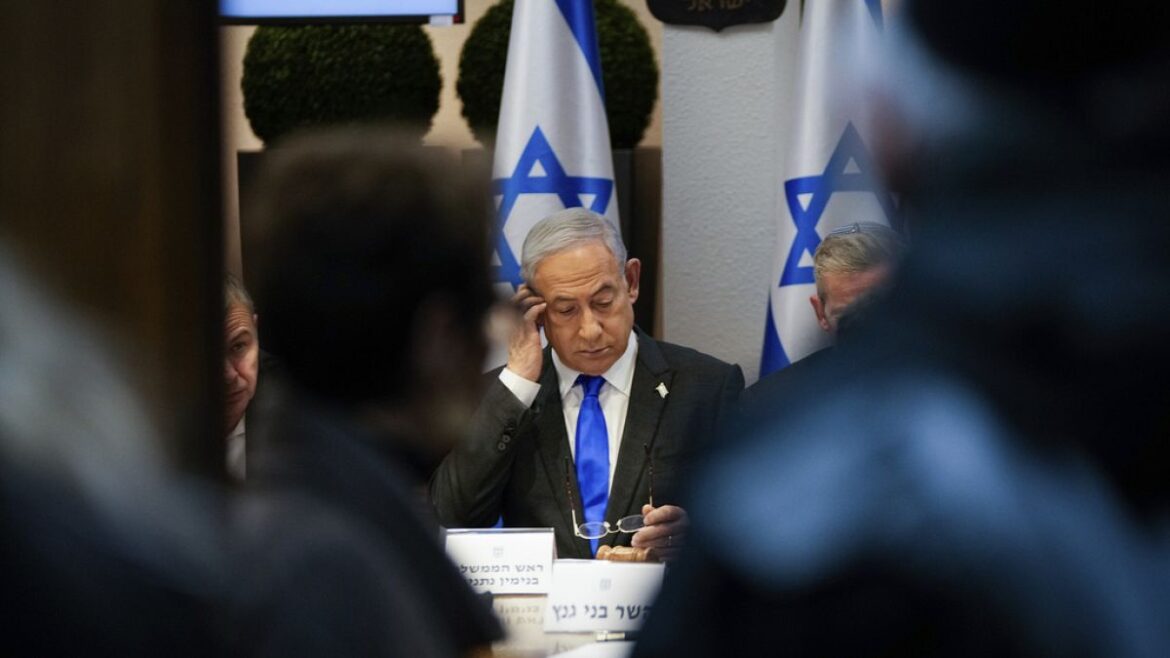The Israeli prime minister said the war against Hamas would continue for “several months” and thanked the United States for new arms sales.
Israeli Prime Minister Benjamin Netanyahu said on Saturday that Israel’s war against Hamas in Gaza would continue for “several more months”pushing back against persistent international calls for a ceasefire.
He also thanked the Biden administration for its continued support, including approving a new emergency arms sale, the second this month, and blocking a UN Security Council resolution. UN calls for immediate ceasefire.
On Saturday, Israeli warplanes struck the urban refugee camps of Nuseirat and Bureij in the center of the enclave, as ground forces moved deeper into the southern town of Khan Yunis.
The Hamas Health Ministry said Saturday that more than 21,600 Palestinians had been killed in the unprecedented air and ground offensive since Hamas’ attack on southern Israel on October 7. The ministry, which does not distinguish between civilian and combatant deaths, said 165 Palestinians had been killed in the past 24 hours. According to the report, around 70% of those killed were women and children.
The number of Israeli soldiers killed in fighting in Gaza rises to 170, after the army announced two more deaths on Saturday.
The war has displaced some 85 percent of Gaza’s 2.3 million residents, sending large numbers seeking refuge in Israeli-designated safe zones that the army nonetheless bombed.
Thousands of displaced people have arrived in Rafah in recent days, on foot or in trucks and carts filled with mattresses. Those who could not find space in the overflowing shelters set up their tents on the side of the roads.
“We don’t have water. We don’t have enough food”says Nour Daher, a woman displaced in a refugee camp. “The children wake up in the morning wanting to eat, to drink. It took us an hour to find water for them. We couldn’t bring them flour. Even when we wanted to take them to the toilet, it It took us an hour to walk.”
In Nuseirat camp, resident Mustafa Abu Wawee said a strike hit the home of one of his relatives, killing two people.
“The Israeli army is doing everything to force people to leave”he said on the phone as he participated in the search for four people missing under the rubble. “They want to break our spirit and our will, but they will fail. We are here to stay.”
Pressure from hostages’ families
More than 120 hostages are still being held in Gaza, after Hamas captured more than 240 during the October 7 assault that also left some 1,200 people dead, most of them civilians.
The families of the hostages demanded that the government prioritize the release of the hostages over other war goals, and held large protests every weekend, including Saturdays.
Egypt, one of the mediators between Israel and Hamas, has proposed a multi-step plan that would begin with an exchange of hostages for prisoners, accompanied by a temporary ceasefire – modeled on an exchange during a week-long truce in November.
Hamas insists the war must end before discussing the release of the hostages. Osama Hamdan, a senior Hamas official in Beirut, reiterated that position Saturday, but also told The Associated Press that “we have not yet given a definitive answer” to the Egyptian proposal.
Asked about reports of possible progress toward a deal, Netanyahu said on Saturday that “we see a possibility, perhaps”but he did not want to arouse “exaggerated expectations”.
More than a week after a UN Security Council resolution called for the unhindered delivery of large-scale aid to the besieged Gaza Strip, conditions have only worsened, warned UN agencies.
Humanitarian aid officials say the aid coming into Gaza remains woefully insufficient. The distribution of goods is hampered by long delays at two border crossings, ongoing fighting, Israeli airstrikes, repeated outages of internet and telephone services and a breakdown in law and order that makes it difficult to secure humanitarian convoys, they declared.



